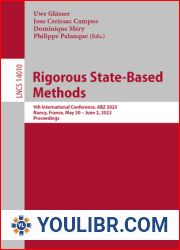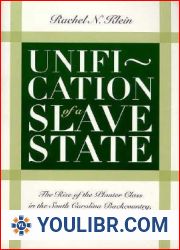
BOOKS - The Current State of Domain Name Regulation: Domain Names as Second Class Cit...

The Current State of Domain Name Regulation: Domain Names as Second Class Citizens in a Mark-Dominated World (Routledge Research in Information Technology and E-Commerce Law)
Author: Konstantinos Komaitis
Year: December 1, 2009
Format: PDF
File size: PDF 1.1 MB
Language: English

Year: December 1, 2009
Format: PDF
File size: PDF 1.1 MB
Language: English

The book "The Current State of Domain Name Regulation: Domain Names as Second-Class Citizens in a Mark-Dominated World" by Konstantinos Komaitis offers a comprehensive analysis of the tripartite problem inherent in the domain name regulation culture, highlighting the intellectual, institutional, and ethical dimensions of the issue. The author utilizes the theory of property to discuss domain names as sui generis 'e-property' rights and examines the past ten years' experience with the Uniform Domain Name Dispute Resolution Policy (UDRP) and the Anticybersquatting Consumer Protection Act (ACPA). The Institutional Deficit Komaitis identifies an institutional deficit in the regulation of domain names, which has led to an unjust environment that prioritizes trademark interests over the rights of registrants. He argues that the existing institutions of UDRP and ACPA have not alleviated the tension between trademarks and domain names, instead promoting a culture that indiscriminately considers domain names as second-class citizens. This assertion is supported by the systematic promotion of trademark interests at the expense of registrants' rights.
Книга Константиноса Комайтиса «Текущее состояние регулирования доменных имен: доменные имена как граждане второго класса в мире, где доминируют знаки» предлагает всесторонний анализ трехсторонней проблемы, присущей культуре регулирования доменных имен, подчеркивая интеллектуальные, институциональные и этические аспекты проблемы. Автор использует теорию собственности для обсуждения доменных имен как sui generis «прав электронной собственности» и изучает опыт последних десяти лет с Единой политикой разрешения споров по доменным именам (UDRP) и Законом о защите прав потребителей Anticybersquatting (ACPA). Институциональный дефицит Komaitis выявляет институциональный дефицит в регулировании доменных имен, что привело к несправедливой среде, которая отдает приоритет интересам товарных знаков над правами регистрантов. Он утверждает, что существующие институты UDRP и ACPA не ослабили напряженность между торговыми марками и доменными именами, вместо этого продвигая культуру, которая без разбора рассматривает доменные имена как граждан второго сорта. Это утверждение поддерживается систематическим продвижением интересов товарных знаков за счет прав регистрантов.
livre de Konstantinos Komaitis, « L'état actuel de la réglementation des noms de domaine : les noms de domaine en tant que citoyens de deuxième classe dans un monde dominé par les signes », propose une analyse complète du problème tripartite inhérent à la culture de la réglementation des noms de domaine, soulignant les aspects intellectuels, institutionnels et éthiques du problème. L'auteur utilise la théorie de la propriété pour discuter des noms de domaine comme sui generis des « droits de propriété électronique » et étudie l'expérience des dix dernières années avec la Politique unifiée de règlement des différends sur les noms de domaine (UDRP) et la Loi sur la protection des consommateurs Anticybersquatting (ACPA). déficit institutionnel de Komaitis révèle un déficit institutionnel dans la réglementation des noms de domaine, ce qui a conduit à un environnement inéquitable qui donne la priorité aux intérêts des marques sur les droits des inscrits. Il fait valoir que les institutions existantes de l'UDRP et de l'ACPA n'ont pas atténué les tensions entre les marques et les noms de domaine, en favorisant plutôt une culture qui traite indistinctement les noms de domaine comme des citoyens de seconde classe. Cette affirmation est soutenue par la promotion systématique des intérêts des marques au détriment des droits des inscrits.
libro de Konstantinos Comaitis «estado actual de la regulación de los nombres de dominio: los nombres de dominio como ciudadanos de segunda clase en un mundo dominado por signos» ofrece un análisis exhaustivo del problema tripartito inherente a la cultura de regulación de los nombres de dominio, destacando los aspectos intelectuales, institucionales y éticos del problema. autor utiliza la teoría de la propiedad para discutir nombres de dominio como sui generis «derechos de propiedad electrónica» y estudia la experiencia de los últimos diez con la Política Única de Resolución de Disputas de Nombres de Dominio (UDRP) y la y de Protección al Consumidor de Anticybersquatting (ACPA). déficit institucional de Komaitis revela un déficit institucional en la regulación de los nombres de dominio, lo que ha llevado a un entorno injusto que prioriza los intereses de las marcas sobre los derechos de los registrantes. Sostiene que las instituciones existentes de la UDRP y la ACPA no han aliviado las tensiones entre las marcas y los nombres de dominio, sino que promueven una cultura que considera indiscriminadamente los nombres de dominio como ciudadanos de segunda clase. Esta afirmación se apoya en la promoción sistemática de los intereses de las marcas a expensas de los derechos de los registrantes.
Il libro di Konstantinos Komaitis «Lo stato attuale della regolazione dei nomi di dominio: nomi di dominio come cittadini di seconda classe in un mondo dominato dai segni» offre un'analisi completa del problema trilaterale inerente alla cultura della regolazione dei nomi di dominio, sottolineando gli aspetti intellettuali, istituzionali ed etici del problema. L'autore utilizza la teoria della proprietà per discutere i nomi di dominio come sui generis «diritti di proprietà elettronica» e studia le esperienze degli ultimi dieci anni con la Politica Unificata per la Risoluzione delle Controversie dei Nomi di Dominio (UDRP) e la gge per la Protezione dei Consumatori Antitybersquatting (ACPA). Il deficit istituzionale di Komaitis rileva un deficit istituzionale nella regolamentazione dei nomi di dominio, che ha portato a un ambiente ingiusto che dà priorità agli interessi dei marchi sui diritti dei registratori. Egli sostiene che le istituzioni esistenti UDRP e ACPA non hanno alleviato le tensioni tra i marchi e i nomi di dominio, invece promuovendo una cultura che non esita a considerare i nomi di dominio come cittadini di seconda classe. Questa affermazione è supportata dalla promozione sistematica degli interessi dei marchi attraverso i diritti dei registratori.
Konstantinos Komaitis Buch „Current State of Domain Name Regulation: Domain-Namen als Bürger zweiter Klasse in einer von Zeichen dominierten Welt“ bietet eine umfassende Analyse des trilateralen Problems, das der Kultur der Domain-Namensregulierung innewohnt, und betont die intellektuellen, institutionellen und ethischen Aspekte des Problems. Der Autor verwendet die Eigentumstheorie, um Domain-Namen als sui generis „elektronische Eigentumsrechte“ zu diskutieren und untersucht die Erfahrungen der letzten zehn Jahre mit der Uniform Domain Name Dispute Resolution Policy (UDRP) und dem Anticybersquatting Consumer Protection Act (ACPA). Die institutionellen Defizite von Komaitis offenbaren institutionelle Defizite bei der Regulierung von Domain-Namen, die zu einem unfairen Umfeld geführt haben, in dem Markeninteressen Vorrang vor den Rechten der Registranten haben. Er argumentiert, dass die bestehenden Institutionen UDRP und ACPA die Spannungen zwischen Markennamen und Domainnamen nicht entschärft haben, sondern eine Kultur gefördert haben, die Domainnamen wahllos als Bürger zweiter Klasse behandelt. Diese Aussage wird durch die systematische Förderung der Markeninteressen durch die Rechte der Registranten unterstützt.
''
Konstantinos Komaitis'in "The Current State of Domain Name Regulation: Domain Names as Second Class Citizens in a gn-Dominated World" (Alan Adı Düzenlemesinin Mevcut Durumu: İşaretlerin Hakim Olduğu Bir Dünyada İkinci Sınıf Vatandaş Olarak Alan Adları) kitabı, alan adı düzenleme kültürünün doğasında bulunan üçlü problemin kapsamlı bir analizini sunarak, sorunun entelektüel, kurumsal ve etik yönlerini vurgulamaktadır. Yazar, alan adlarını sui generis "elektronik mülkiyet hakları'olarak tartışmak için mülkiyet teorisini kullanır ve Tekdüzen Alan Adı Uyuşmazlık Çözüm Politikası (UDRP) ve Anticybersquatting Consumer Law (ACPA) ile son on yılın deneyimini inceler. Komaitis kurumsal açıkları, alan adı düzenlemesindeki kurumsal açıkları ortaya çıkarmakta ve marka menfaatlerini tescil ettirici haklara göre önceliklendiren adil olmayan bir ortam yaratmaktadır. Mevcut UDRP ve ACPA kurumlarının marka adları ve alan adları arasındaki gerilimleri azaltmadığını, bunun yerine alan adlarını ayrım gözetmeksizin ikinci sınıf vatandaşlar olarak ele alan bir kültürü teşvik ettiğini savunuyor. Bu iddia, marka haklarının tescil ettirenlerin hakları pahasına sistematik olarak teşvik edilmesiyle desteklenmektedir.
يقدم كتاب كونستانتينوس كومايتيس «الوضع الحالي لتنظيم أسماء النطاقات: أسماء النطاقات كمواطنين من الدرجة الثانية في عالم تهيمن عليه العلامات» تحليلاً شاملاً للمشكلة الثلاثية المتأصلة في ثقافة تنظيم أسماء النطاقات، مع تسليط الضوء على الجوانب الفكرية والمؤسسية والأخلاقية للمشكلة. يستخدم المؤلف نظرية الملكية لمناقشة أسماء النطاقات باعتبارها «حقوق ملكية إلكترونية» فريدة من نوعها ويدرس تجربة السنوات العشر الماضية مع سياسة تسوية المنازعات بأسماء النطاقات الموحدة (UDRP) وقانون مكافحة البيرسكواتينغ للمستهلكين (ACPA). يكشف العجز المؤسسي في Komaitis عن عجز مؤسسي في تنظيم أسماء النطاقات، مما يؤدي إلى بيئة غير عادلة تعطي الأولوية لمصالح العلامات التجارية على حقوق المسجل. يجادل بأن مؤسسات UDRP و ACPA الحالية لم تخفف التوترات بين الأسماء التجارية وأسماء النطاقات، وبدلاً من ذلك تروج لثقافة تتعامل بشكل عشوائي مع أسماء النطاقات كمواطنين من الدرجة الثانية. ويدعم هذه المطالبة الترويج المنهجي لمصالح العلامات التجارية على حساب حقوق المسجلين.















![Zombie State [NA Version] (Zombie Apocalypse #2) Zombie State [NA Version] (Zombie Apocalypse #2)](https://youlibr.com/img/6/646970_oc.jpg)

































